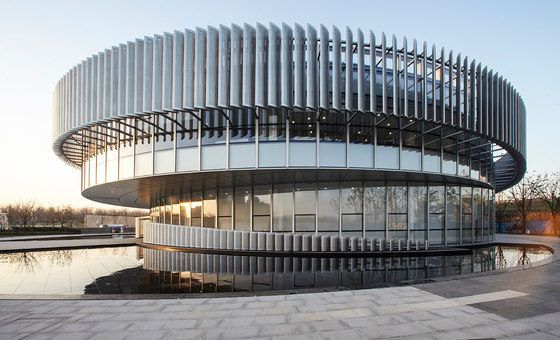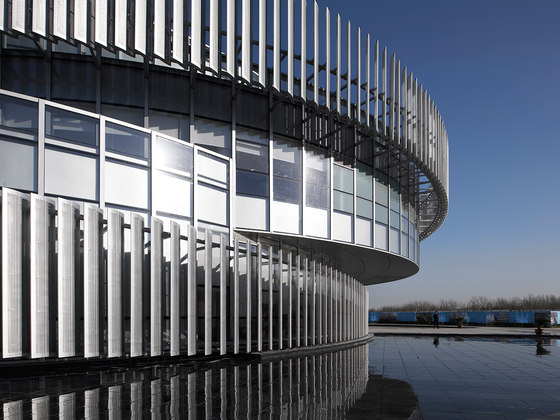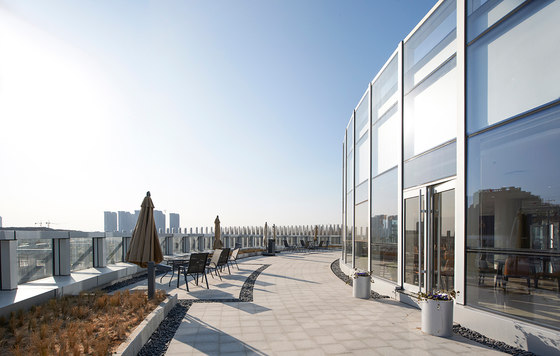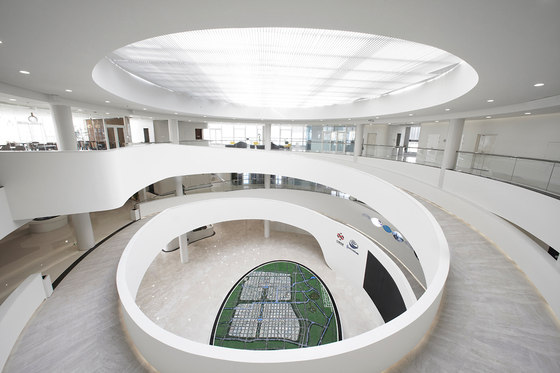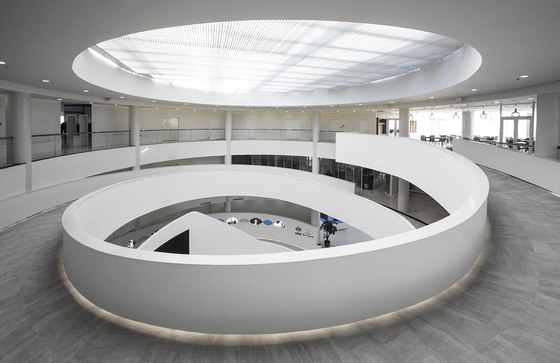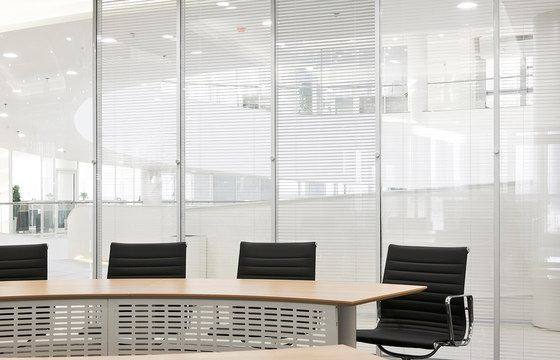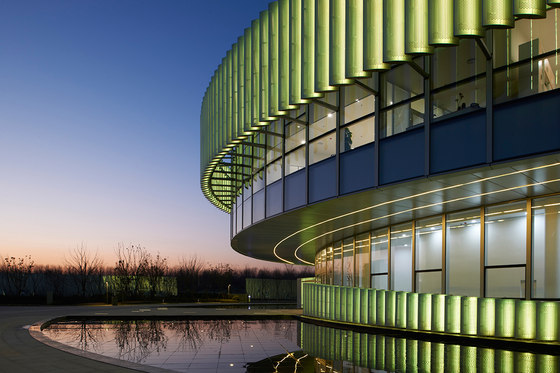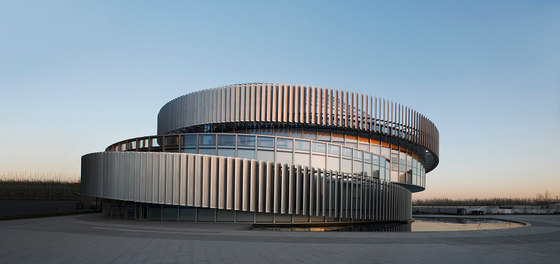Zhengzhou Linkong Biopharmaceutical Park is the largest innovative and entrepreneurship base for R&D and production of life science and biotechnology in Henan Province, China. Its innovation, cutting-edge and unlimited potential for development are all important factors for designers to consider.
The curvilinear passage that one can roam about serves as the life axis and connects the north and the south of the park. The exhibition center of elliptical form, whose design is integrated into the central landscape, is located in the center of the axis. Its well-arranged layering and sense of quality make it the landmark building that precedes the construction of the park.
Together with the international conference center and incubator center in the south, the exhibition center forms the main square of the park as well as forming a sharp contrast with the square modulization pilot products in the north--circular symbolizes freedom while square represents preciseness. The curve modeling, spiral and irregular, endows the exhibition center with a quiet power in its soft stretch and retracting. It is also an architectural language borrowed to pay tribute to DNA, the most important source code of modern biopharmaceutical industry.
The core space of the center uses double helix structure, thus creates a vertical space combined with the central landscape. Its exterior uses metal louvers hovering from the surface waterscape until reaching the roof platform and the interior is organically connected in series via spiral ramps which form life trails, and create coherent and convenient internal flow lines among floors.
Three ellipses with different functions rotate in different directions, forming a variety of interesting spaces. The continuous curves indoors and outdoors simultaneously form double helix structures, which satisfy the visual requirements in all directions. The spiral louvers condense into an organic structure that traps the three ellipses and forms an infinitely continuous plastic form.
The first floor of the building is a display space, whose large area of floor-to-ceiling glass curtain walls better connect the indoor and outdoor views. The second floor is a flexible office space that meets the needs of different groups of people; it forms a visual continuity with the central space through glass partitions. The dining space on the third floor is the highest point of the entire building, and the outdoor viewing platform also provides a view of the entire park.
Under the backdrop of the large glass curtain walls, the shutter profiles made of metal aluminum panels make the exhibition center shows a stronger sense of technology. Each louver section is shuttle shaped, and perforated aluminum plate is used to make the entire building lighter, and different light and shade effects are produced with sunlight’s angles. Each shuttle louver is rotated 30 degrees in the direction of the spirals, cleverly concealing the lamp troughs at the ends, and the curved illuminated face gives the light a rhythmic beauty that enhances the overall flow of the building.
The entrance to the exhibition center cleverly applies a circular waterscape that echoes with the architectural form of double helix DNA. Through the bridge, one can enter the main entrance formed by the waterscape and the second-floor cantilevered structure, whose exaggeration increases the visual sense of layering. The reflection in the water fluctuates with the wind, which echoes with the building.
The center aims to return design ideas to the origin of biopharmaceuticals, and architecture to human charisma, thus obtaining life dynamics extending upward. The beauty of the infinitely variable curves conceals the building’s ceiling, which looks as if it is spreading all the way to the clouds. This special design also explains the designer's initial aspiration that is ever forwarding in splendid architectural creations.
Xing Gang Investment
Architect Firm: WSP ARCHITECTS
Chief Architects: Wu Gang, Chen Ling, Nelson Tam
Architects: Sun Zhe, Weng Jinfan, Zhao Minghu, Chen Peng, Li Donghui, Guo Jianlong, Li Long, Zhang Zeyang, Cui Qiaoya, Li Yujie, Xiao Yipeng, Wang Lu, Yu Fei
